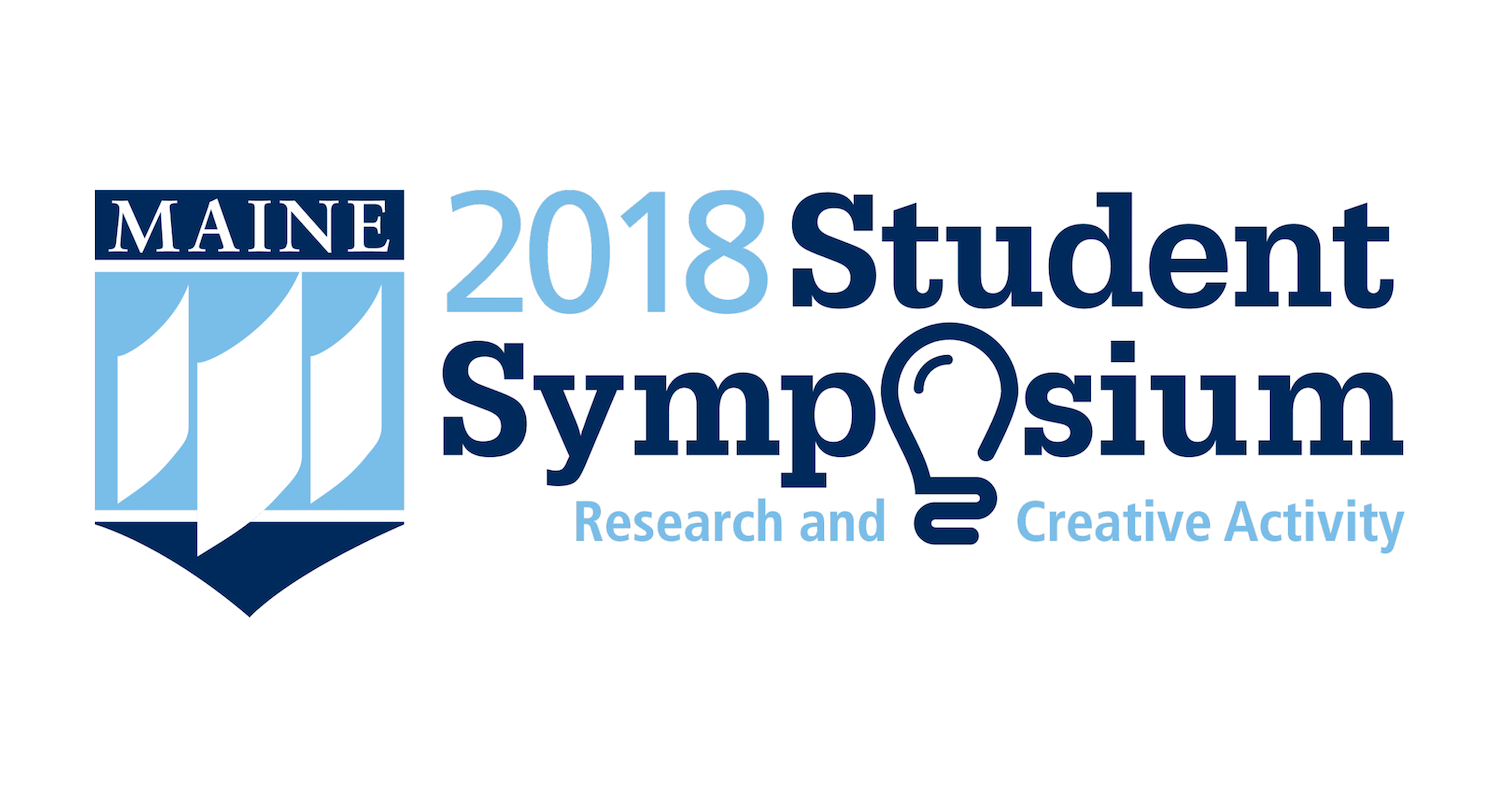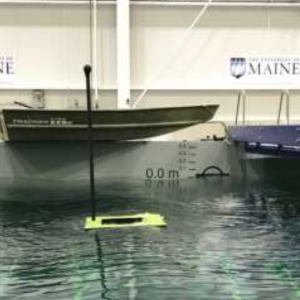
Graduate Student Hannah Allen Awarded Best Presentation at UMaine Student Symposium

Hannah Allen, a graduate student advised by Dr. Andrew Goupee, Dr. Anthony Viselli, and Dr. Habib Dagher, received an award for Best Presentation at the UMaine 2018 Student Symposium on Research and Creative Activity.
Allen’s presentation, titled, “Testing and Validation of Emerging Hull Technologies for Floating Offshore Wind Turbines,” examined a 6 MW iteration of an offshore wind turbine hull design–through numerical and experimental means–that included the application of a moonpool to aid in mitigating platform motion in the presence of waves. A version of this hull sized for a 2 MW turbine is currently awaiting deployment in France.
Allen’s full abstract follows:
As the world looks more heavily toward energy production alternatives, wind turbines have become increasingly more popular. Floating Offshore Wind Turbines (FOWTs) can access 70% of the United States offshore wind resource which is currently inaccessible for fixed-bottom foundation technology. FOWT foundation technologies are evolving rapidly and the first commercial farms are expected in the near future. There are many potential designs for floating offshore wind turbine hulls, however, a commercially dominant architecture has yet to emerge. Early hull designs including semisubmersible, spar, and tension leg platforms were largely derived from offshore oil technologies. Recent developments in the commercial application of FOWTs have resulted in a number of variations on these original three varieties which are more optimized for loading and/ or construction. One hull design of interest includes the application of a moonpool to aid in mitigating platform motion in the presence of waves. A version of this hull sized for a 2 MW turbine is currently awaiting deployment in France. In this project, a 6 MW iteration is studied through numerical and experimental means. The first portion of this project looks at wave-induced motion using ANSYS AQWA, a commercial hydrodynamic software. The second phase of the project involves testing of a 1/100th scale model in the Harold Alfond W2 Ocean Engineering Laboratory. The numerical and experimental results are compared to determine the ability of ANSYS AQWA to simulate the response of a floating system containing a moonpool. This project was financially sponsored by the Harold Alfond Foundation.
